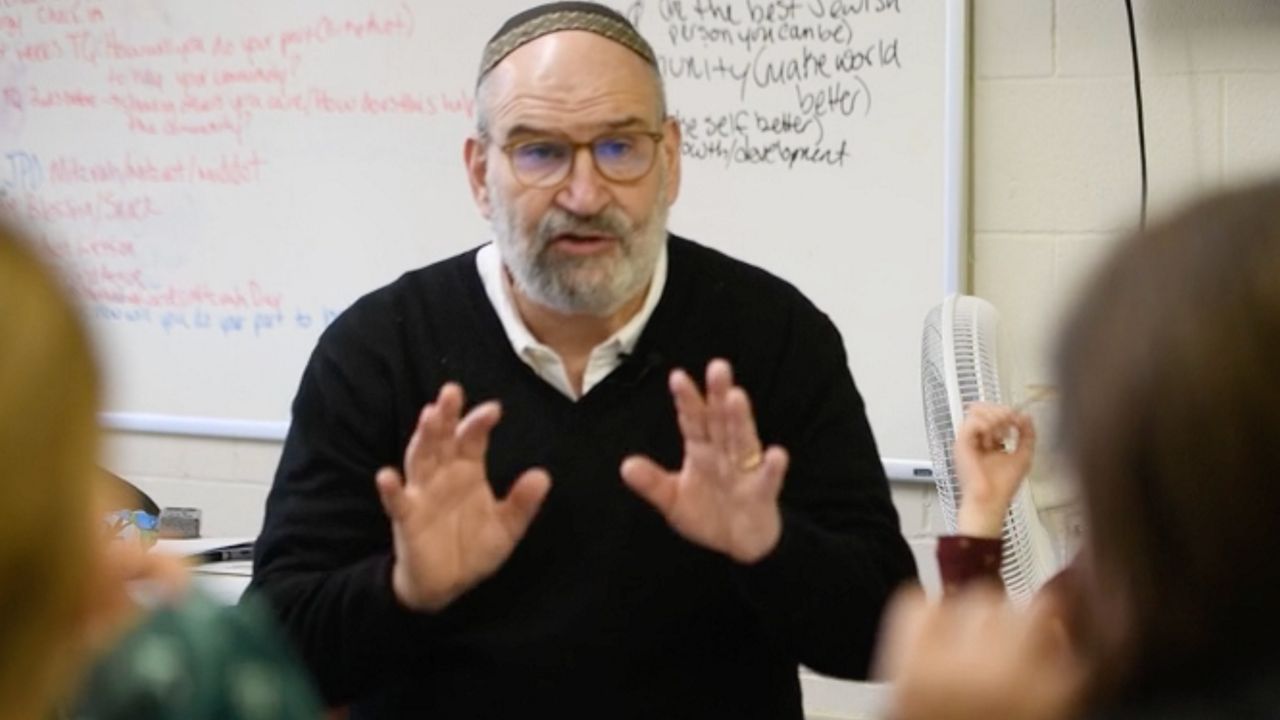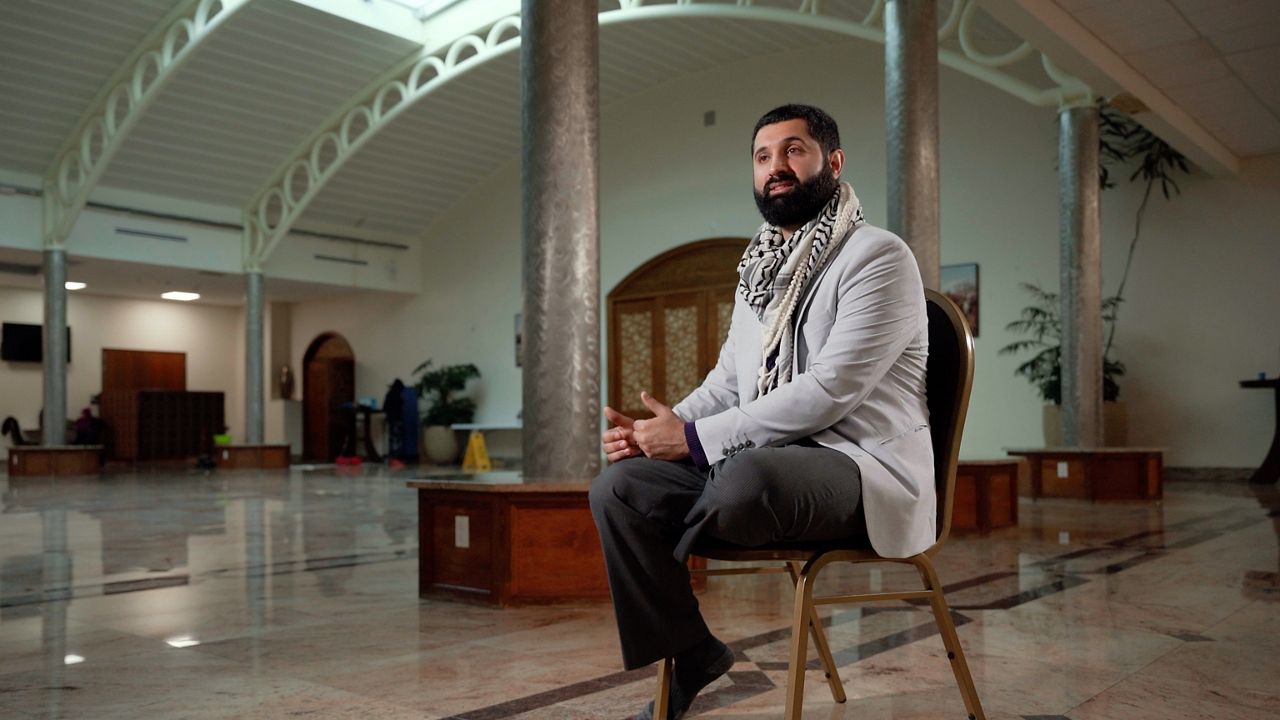As the war in Gaza enters its fourth month, tensions from the conflict have rippled throughout the world and U.S., where hostilities have led to a rapid rise in hate crimes and incidents of antisemitism and Islamophobia, according to advocacy groups and alarmed New Yorkers.
The war between Israel and Hamas – a U.S.-designated terrorist organization – started Oct. 7, 2023, when armed Hamas militants breached security fences, entered Israel, killed nearly 1,200 people and captured more than 200 hostages.
Israel has responded with months of relentless attacks that the Gaza Health Ministry says have killed more than 25,000 people and destroyed entire neighborhoods.
Images from the latest Middle East war have reverberated around the globe, fostering anger that has spilled out into the open, leading to an escalation in acts of discrimination against Jewish people and Muslims. The crimes include assaults, harassment, vandalism and explosive rallies and dangerous rhetoric, increasing concerns among New Yorkers.
'Fear'
The invasion of Israel and its aftermath is stirring alarm in New York.
“I will tell you the one word I would use with the rise in antisemitism is fear," said Matthew Cutler, rabbi at Congregation Gates of Heaven in Schenectady. "There is an incredible sense of uneasiness that we've never seen before."

The Anti-Defamation League says antisemitic incidents in the U.S. increased 337% in the two months following Oct. 7. On college campuses, 73% of Jewish college students have experienced or witnessed some form of antisemitism since the beginning of the school year, according to the ADL.
“We're getting the nasty comments. We are getting signs pulled out from the front lawn. We are hearing of kids having mezuzah necklaces ripped off their neck. We're hearing stories of Israeli flags being ripped off backpacks and being flushed down the toilet," Cutler said.
Jen Price says she first experienced antisemitism as a second-grader.
"We were in a music class and we were singing more religious Christmas songs, and I didn't know them, so I wasn't singing," she recalled. "The teacher embarrassed me and shamed me for not singing, and made me go sit under a desk in the classroom to like, point out that this girl was being a bad kid."
Now, as a mother, she worries about her children and how they have to defend their Jewish identity.
“All four of my children, I remember concrete times, plural, when they were kids, when kids said things to them, when they were affected, when they had to make that decision of, 'am I going to still be proud of who I am and I get to say something, or am I just going to pretend I don't hear it and just move on with my day?'" Price said.
Guilty as charged
Muslim Americans are also increasingly encountering hate and in some instances, violence, according to data and reports, creating a feeling some compare to the backlash they experienced after Sept. 11, 2001.
The Council on American-Islamic Relations (CAIR) said it received 3,578 complaints during the last three months of 2023, a 178% rise from complaints in the same period from a year earlier. The state Division of Homeland Security and Emergency Services reported a 417% increase in online hate speech against Muslim communities since the war started.
In the days after Oct. 7, a 71-year-old man in Plainfield, Illinois, was charged with fatally stabbing a 6-year-old child and wounding his Palestinian American mother. Authorities said he targeted them because of their Muslim faith.
CAIR is calling for federal and state hate crime charges against a man accused of stabbing a Palestinian American man Sunday evening near the University of Texas at Austin.
Ahmad Abu-Hakmeh is a first-generation Muslim American whose parents immigrated from Palestine for a better education and economic opportunities. He said growing up Palestinian and Muslim in America has made him fearful, and at times, as he put it, guilty as charged.
“People look back at how this country was formed, people leaving religious persecution in Western Europe to be able to practice here. That's what we're trying to do. You know, we want to be able to practice our religion freely,” Abu-Hakmeh said.
Anti-Muslim rhetoric became pronounced after 9/11. There's a feeling among some that it's returned, or never left.
“The way we are covered in the media, the way we are, when we talk about Palestinians and current events as well as Muslims, it’s made to make us seem that the only thing we have to contribute to society in many ways is violence, death and destruction of other folks. And as a kid, that's very difficult to process,” said Abu-Hakmeh.

Imam Mansoor Rafiq Umar says he is working to break through the portrayals, misconceptions and stereotypes held against Muslims and Islam.
“They confirm an idea in the minds of those who already have some preconceived notions. And that's a confirmation for them that, yes, this is true, that Muslims, they believe are terrorists. Right. Muslims are evil, Muslims are bad,” Umar said.
He continued, “If Hamas claims that killing children, killing babies, slaughtering and kidnapping, if they claim that that is an OK thing to do, then we definitely do not support it. Full stop.”
'We cherish these values'
New York Gov. Kathy Hochul recently called Oct. 7 a turning point, and announced support for new legislation that would expand the number of offenses that can be prosecuted as hate crimes.
“We’ve seen a horrific increase in hate crime against Jewish and Muslim New Yorkers,” Hochul said recently at a Manhattan roundtable focusing on public safety and combating hate crimes.
Despite the growing acrimony, New Yorkers are pinning their hopes on greater understanding and appreciation of the value of all human lives.
As the war continues to dominate the headlines, Cutler wants to emphasize that people are not their government.
"You see, what's happening in Israel is not a Jew versus Muslim situation. It's Israel versus Hamas, and we have lost that perspective," Cutler said.
As people on both sides of the war mourn the loss of loved ones, he said the best way to show support is to offer a shoulder to lean on.
"I can't change the Hamas-Israeli conflict. I can't bring the hostages back. I can't alleviate the suffering of Palestinians in Gaza City. However, I can support my local Muslim neighbor and give voice to their angst by being there as the same way that I expect them to be there for me," Cutler said.
Abu-Hakmeh, who is the father of three children, shared how parents in Gaza are writing the names of children on their arms in case they are dismembered so they can be identified.
"I have seen daughters, I have seen girls, that look like my daughters. And so again, that will always be the main source of pain when processing this," Abu-Hakmeh said.
Despite those feelings, he sees a larger picture.
“We have a role to come together as a society, as people who love freedom, who love free speech, who love safety, who love liberty. And we cherish these values and say, 'you know what? There's people in other parts of the world that don't have this right now,” said Abu-Hakmeh.



